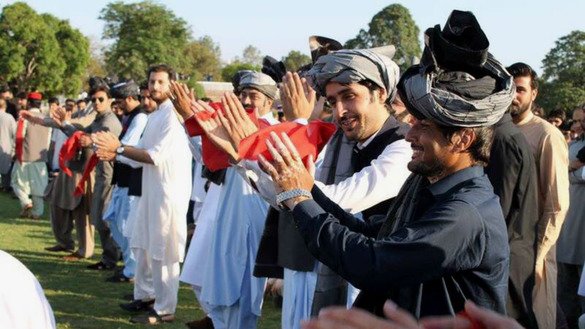PESHAWAR: The Pakhtun Qaumi Jirga proposed the establishment of a “Pashtun Milli Lashkar,” an unarmed force aimed at protecting Pashtun communities in the region, as a local defense mechanism.
The initiative calls for the formation of a Lashkar comprising 3,000 youth from each district and political party, as suggested during the three-day jirga’s closing session. Manzoor Pashteen, leader of the Pashtun Tahaffuz Movement (PTM), announced the proposal and advocated for the creation of a committee responsible for overseeing resource extraction across the Pashtun belt, which spans from Quetta to Kohistan and Chitral.
Pashteen emphasized that the committee’s role would be to ensure that local resources are utilized for the benefit of the community, preventing any extraction that does not directly support the Pashtun people. He also addressed the situation in Afghanistan, urging the Taliban-led government to lift the ban on girls attending school. “The Afghan government must allow women to receive education,” he stressed, highlighting the importance of education in empowering future generations.
The jirga also tackled the issue of extortion, with Pashteen assuring attendees that no Pashtun would be compelled to pay extortion money. “If anyone is threatened, the entire jirga will stand behind them,” he declared, underscoring the importance of collective action against coercion.
Additionally, Pashteen called for the removal of trade restrictions at key border points, including Torkham, Nawapass, Chaman, and Angoor Adda, demanding that Pashtuns be allowed to trade freely without unnecessary barriers.
The jirga concluded with a commitment to formalize the proposals discussed, marking a significant step toward advocating for Pashtun rights and autonomy. While various political figures were present, they engaged with attendees in smaller groups, with Jamaat-e-Islami’s Mushtaq Ahmad Khan addressing the entire event and declaring the jirga as the primary decision-making body for Pashtun affairs.


